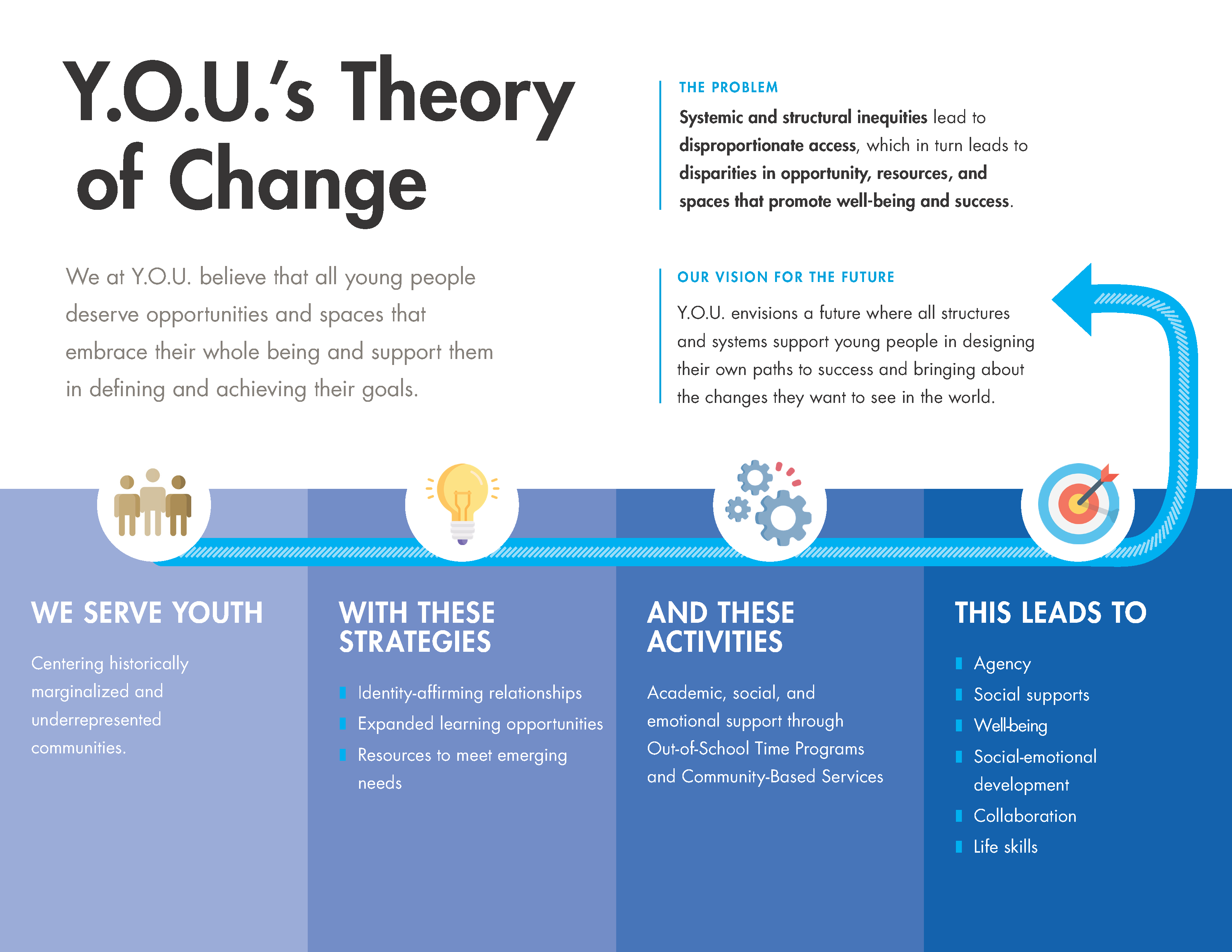Published: September 15, 2021
After a collaborative process conducted during the 2020-2021 program year, Y.O.U. is pleased to share our Theory of Change. This Theory of Change allows Y.O.U. to describe how and in what contexts change happens for youth who participate in our programs and services. This Theory of Change was developed through a rigorous and participatory process used to engage stakeholders from across Y.O.U. to clarify long-term goals, consider what is necessary to meet those goals, and identify indicators for measuring progress. For Y.O.U., the creation of a Theory of Change allowed staff and board members to reflect on the problem Y.O.U. seeks to address, examine what would be different if Y.O.U. did not exist, consider who we serve, describe how we do our work, determine how youth will benefit from Y.O.U.'s programs and services, and select the right tools to measure and communicate our impact. Our Theory of Change was a foundational element of Y.O.U.'s strategic planning process and now guides both program planning and program evaluation.
The process was led by Eric Brown, evaluation consultant and PhD candidate at Northwestern University's School of Education and Social Policy. Input from all staff members and the Board of Directors was gathered throughout the process. Special thanks to our committed Theory of Change working group members: Jane Baron, Chanquel Jones, Sarah Kirby, Jennifer Simpson Leigh, Megan Orleans, Melody Rose, Alynn McCormick, Laura Savage, Patty Valkanas, Leslie Warner, and Em Wilder.


